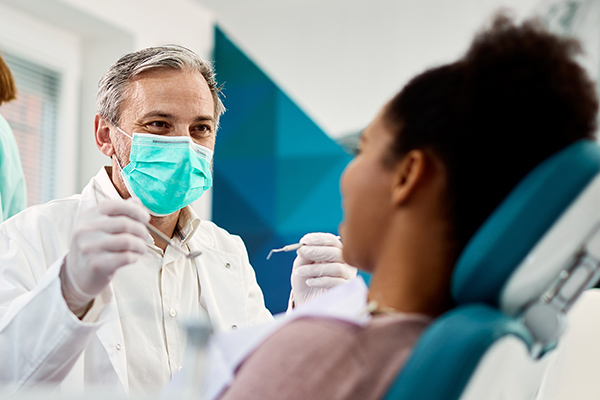Aftercare for fluoride treatments
Fluoride is a mineral that naturally strengthens teeth and helps prevent cavities. Applying fluoride in a professional setting is a simple, painless task that can be accomplished in a short period of time — even over a patient’s lunch break. Fluoride may be applied through a mouthwash or varnish. Some treatments do not need any rest time, and patients can eat immediately afterward. If a patient receives a varnish, the general dentist may recommend waiting at least 30 minutes before eating and until nighttime for brushing to let the varnish adhere to the teeth.
Food to eat after a cleaning
Patients interested in maintaining the full integrity of the fluoride treatment should avoid certain foods directly after the dental visit. Items that are especially hot, cold, crunchy, sticky, hard, spicy, or acidic are better to avoid. If a patient is not sure about some foods, simply waiting half an hour before eating at all is a safe bet. After a few hours, everything is fine to eat.
Important oral hygiene habits
While fluoride is a fantastic option to strengthen enamel and avoid decay, it can be harmful in large doses. Taking care of teeth by practicing daily oral hygiene is the most effective way to maintain great health. Brush twice each day, floss at least once, use mouthwash, and visit a general dentist biannually.
Other questions about fluoride
In addition to discussing aftercare, a patient should also understand how fluoride treatments benefit teeth, how to properly prepare for them, and what side effects might occur. Asking the right questions can help patients make educated decisions on treatments and overall oral health.
What are the benefits of fluoride?
Fluoride treatments are beneficial to both the teeth and gums. Natural bacteria that form in the mouth gradually decay tooth enamel. Fluoride restores the minerals in teeth and makes them stronger. Fluoride can also eliminate bacteria and stop its growth, which prevents cavities from forming and gums from getting infected.
Are there side effects?
It is possible to consume too much fluoride and experience negative side effects. An overabundance of fluoride may create staining or spotting and cause teeth to grow dense but not strong. Fluoride poisoning is rare but also possible.
How should patients prepare for treatment?
Fluoride is one of the easiest dental procedures. Other than brushing thoroughly before arriving at the dental office, patients do not need to prepare for fluoride.
Conclusion
Keeping teeth strong and healthy is crucial to avoid future oral problems. Patients who are susceptible to cavities or decay may want to consider fluoride in addition to regular oral hygiene habits. Talk to a general dentist if questions still remain about the process and benefits.
Request an appointment or call Lee Family and Cosmetic Dentistry at 662-546-1143 for an appointment in our Oxford office.
Recent Posts
A general dentist is usually the primary caretaker for oral health, providing routine and preventative care. However, some choose only to schedule an appointment once they have an issue they can no longer ignore or self-treat. Either way, a general dentist has many of the services you need to obtain or maintain optimal oral health.The…
A key part of a general dentist's job is helping patients protect their teeth from damage, wear, and decay. Preventing dental problems can help patients save time, trouble, discomfort, and money. Here is a closer look at how general dentists help patients keep their teeth in good condition.General dentists may provide the following preventive services…
A trip to the dentist every six months can go a long way toward protecting your oral health. General dentists can perform an oral exam, catching any oral health issues early on. They will also remove tartar buildup during a professional teeth cleaning to preserve the teeth and gums. Explore why you should schedule an…


